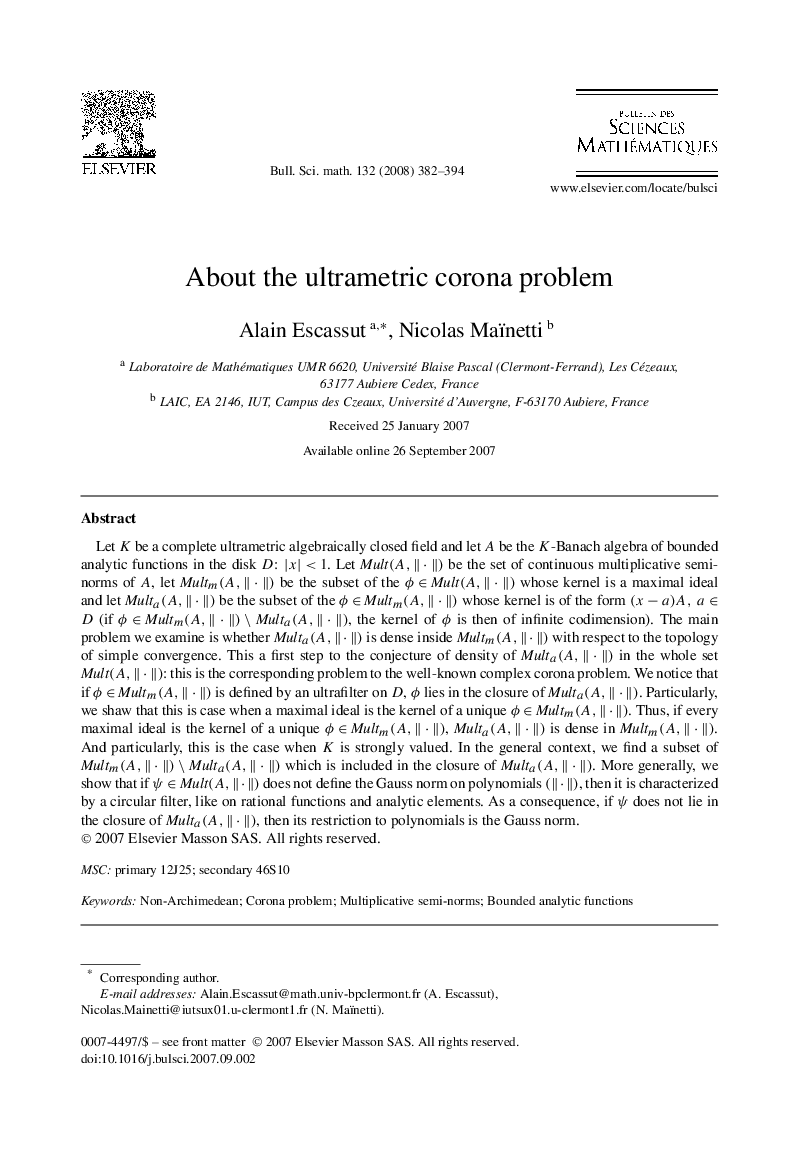| Article ID | Journal | Published Year | Pages | File Type |
|---|---|---|---|---|
| 4669352 | Bulletin des Sciences Mathématiques | 2008 | 13 Pages |
Let K be a complete ultrametric algebraically closed field and let A be the K-Banach algebra of bounded analytic functions in the disk . Let Mult(A,‖⋅‖) be the set of continuous multiplicative semi-norms of A, let Multm(A,‖⋅‖) be the subset of the ϕ∈Mult(A,‖⋅‖) whose kernel is a maximal ideal and let Multa(A,‖⋅‖) be the subset of the ϕ∈Multm(A,‖⋅‖) whose kernel is of the form (if ϕ∈Multm(A,‖⋅‖)∖Multa(A,‖⋅‖), the kernel of ϕ is then of infinite codimension). The main problem we examine is whether Multa(A,‖⋅‖) is dense inside Multm(A,‖⋅‖) with respect to the topology of simple convergence. This a first step to the conjecture of density of Multa(A,‖⋅‖) in the whole set Mult(A,‖⋅‖): this is the corresponding problem to the well-known complex corona problem. We notice that if ϕ∈Multm(A,‖⋅‖) is defined by an ultrafilter on D, ϕ lies in the closure of Multa(A,‖⋅‖). Particularly, we shaw that this is case when a maximal ideal is the kernel of a unique ϕ∈Multm(A,‖⋅‖). Thus, if every maximal ideal is the kernel of a unique ϕ∈Multm(A,‖⋅‖), Multa(A,‖⋅‖) is dense in Multm(A,‖⋅‖). And particularly, this is the case when K is strongly valued. In the general context, we find a subset of Multm(A,‖⋅‖)∖Multa(A,‖⋅‖) which is included in the closure of Multa(A,‖⋅‖). More generally, we show that if ψ∈Mult(A,‖⋅‖) does not define the Gauss norm on polynomials (‖⋅‖), then it is characterized by a circular filter, like on rational functions and analytic elements. As a consequence, if ψ does not lie in the closure of Multa(A,‖⋅‖), then its restriction to polynomials is the Gauss norm.
